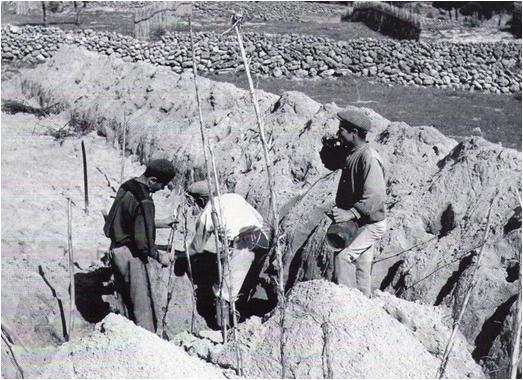As I finalised my order last week, taking wines from the cellar of a winery that are never going to be replenished, I thought about scarcity, and just what happens when a wine region simply runs out of wine.
Usually, it’s not a problem, as older vintages disappear, the constant stream of new ones starts the cycle again. Prices go up, prompting new players in the market, or they fall and the region suffers.
In Colares, a tiny wine region on the far west, windy and wild edge of Portugal faces a different problem. The vines dug deep into the sand, that have resisted phylloxera, face a much more ruthless existential threat. Property developers.
The cost, both financial and physical of cultivating these ancient vines, ageing the wines and selling them just became more and more difficult, and although the old-timers persevered, producing great vintages and remaining true to the classic style, when they reached retirement, there was simply no-one to take over, so one by one, the vineyards got sold off to the much more lucrative business of holiday homes for wealthy Lisboans.

Now, the entire production is about the same as that of Clos Vougeot, less then twenty times what it was at it’s peak when it was regarded as Portugal’s Bordeaux for its ability to create very long lived, pale, intellectual wines.
I think there are many ways to evaluate wines, and we do ourselves a disservice if we remove the cultural context from what’s in the glass. For me, it’s what endlessly draws me back to wine, the complex, ever shifting relationship to the structures that created it. Which is why, as much as I love the taste of these old soldiers from Colares, the rise and fall off the place that gave birth to them, is every bit as compelling and well worth thinking over as one sips the salty, fresh Ramisco that like the contents of your glass is slowly fading away.
Looking towards the future, the production seems to have steadied over the last ten years. The reaming producers, Adega Regional, Viuva Gomes, Paulo da Silva-Chitas and Fundação have been making efforts to expand a little but production will probably continue to be pretty miniscule. I wish them luck.
